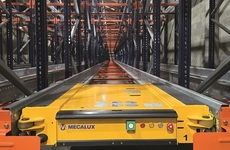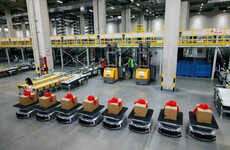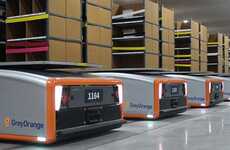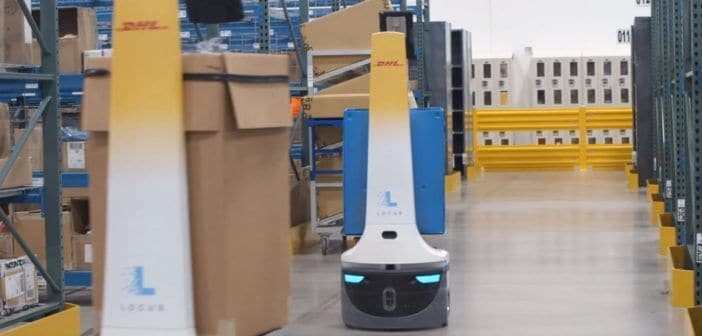
Locus Robotics Joins DHL Supply Chain on New Digital Processes
References: logisticsmanager
DHL Supply Chain extends its warehouse functions with the latest collaboration alongside Locus Robotics. Continuing to digitalize the methods behind the scenes, -- this starts the motion of implementing up to 2,000 artificially intelligent robots at a global scale. The robots will be integral to the company's operation and will be mostly used for e-commerce functions. It assists with picking and inventory replenishment, which results in higher efficiency and speeds up the delivery process.
Robots can also help save time by eliminating the maneuvering pushcarts in warehouses, lower physical strain for employees on-site, and optimize performance at a larger scale. Rick Faulk, CEO of Locus Robotics states, “Our expanded partnership with DHL reflects the increasing demand for warehouse digitalization worldwide to meet today’s exploding fulfillment challenges, [...] Locus is proud to be a valued technology resource that is helping DHL realize their strategic vision of digital transformation.”
Image Credit: Locus Robotics, DHL Supply Chain
Robots can also help save time by eliminating the maneuvering pushcarts in warehouses, lower physical strain for employees on-site, and optimize performance at a larger scale. Rick Faulk, CEO of Locus Robotics states, “Our expanded partnership with DHL reflects the increasing demand for warehouse digitalization worldwide to meet today’s exploding fulfillment challenges, [...] Locus is proud to be a valued technology resource that is helping DHL realize their strategic vision of digital transformation.”
Image Credit: Locus Robotics, DHL Supply Chain
Trend Themes
1. Warehouse Robotics - Increasing demand for digitalization in the warehouse industry opens opportunities for innovative robotics technology.
2. Artificial Intelligence in Logistics - Integration of AI-powered robots in logistics streamlines operations and enhances efficiency.
3. E-commerce Fulfillment Optimization - Robots assist with picking and inventory replenishment to speed up e-commerce delivery processes and satisfy customer demands.
Industry Implications
1. Warehouse and Inventory Management - Collaborative robotics projects provide more efficient and cost-effective ways to operate and manage warehouse facilities.
2. Logistics and Delivery Services - AI-powered robotics technology in logistics streamlines processes, increases efficiency, and ultimately enhances the overall customer shopping experience.
3. E-commerce - Robots used predominantly for e-commerce fulfillment processes provide a competitive edge as they speed up deliveries and help meet high customer expectations.
2.2
Score
Popularity
Activity
Freshness























